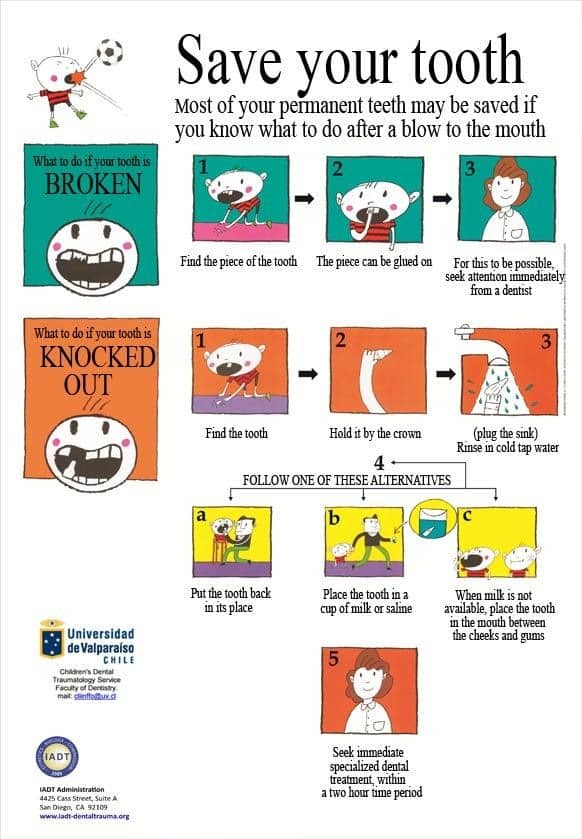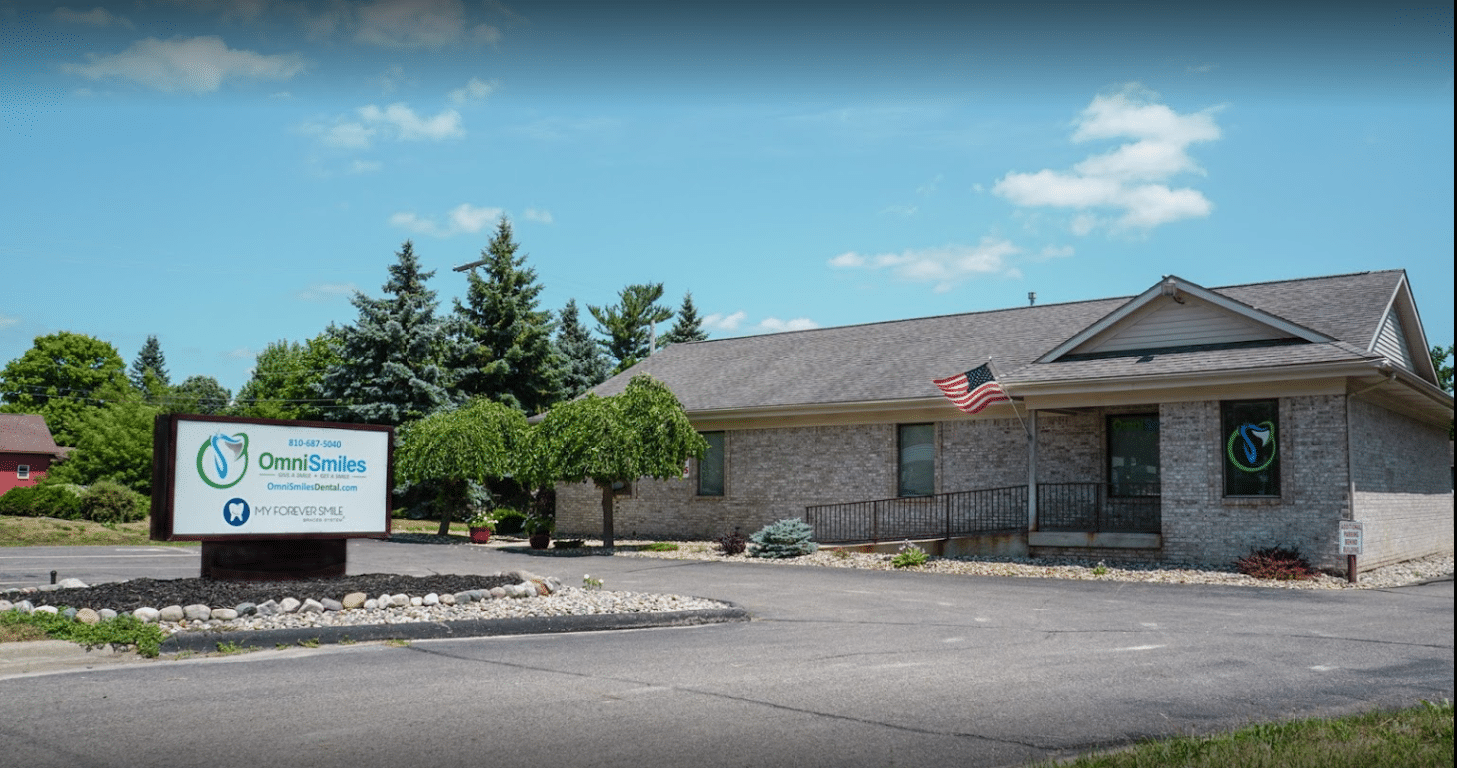Dental Trauma
A dental traumatic injury may occur as the result of an accident such as a fall, sports injury, or any sort of high impact trauma to the face. This includes but is not limited to a tooth being chipped or cracked, dislodged, or completely knocked out. The sooner a dental professional is contacted the better, because it will increase the likelihood of saving your tooth.
Treatment will depend on the severity of the injury that will be determined by the dentist.
Chipped/cracked teeth
- If the crack is limited to the crown of the tooth (portion of the tooth you can see) a filling or crown may be recommended
- When the fracture reached the nerve of the tooth on the inside, a root canal is indicated
- Fractures extending underneath the gums and onto the root surface of a tooth are likely to be recommended for removal
Dislodged teeth
- Teeth may be repositioned or stabilized back into its intended position
- Root canal treatment is likely to be recommended soon after injury, as well as a crown at a later date
- Tooth will be monitored at follow up appointments as needed
Knocked out teeth
- Timing is most important in this situation to increase the chances of saving your tooth! Preferably within 30 minutes.

Tips for when this happens:
- Do not touch the root surface of the tooth!
- If dirty, gently rinse the tooth with water, do not scrub, dry, or wrap the tooth
- Gently push and reposition the tooth in the socket immediately if possible, avoiding touching the root surface. Hold in place gently with fingers or by biting down lightly
- Keep the tooth moist
- In mouth- in socket if possible, if not keep next to your cheek
- In a cup of your own saliva
- In cup of milk
- In a specialized tooth preservation solution such as “Save-A-Tooth”
- See your dentist ASAP

To find out more about which service options are best for you, please call (810) 687-5040 or request an appointment online.


